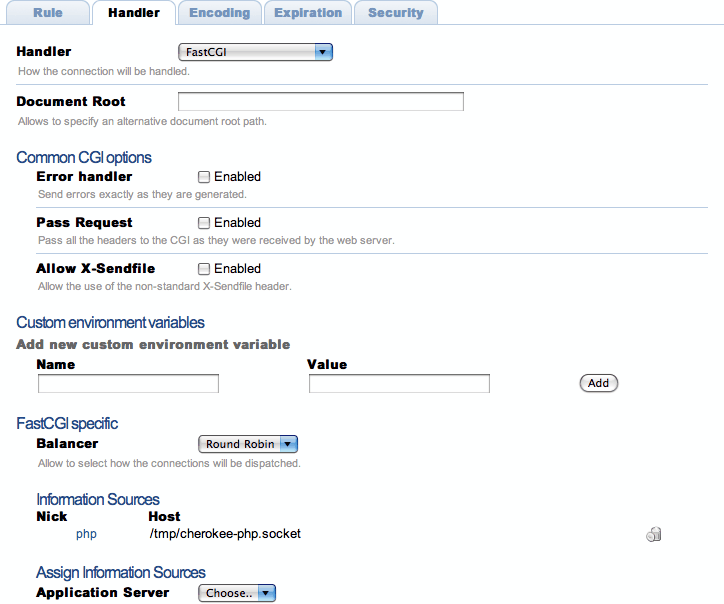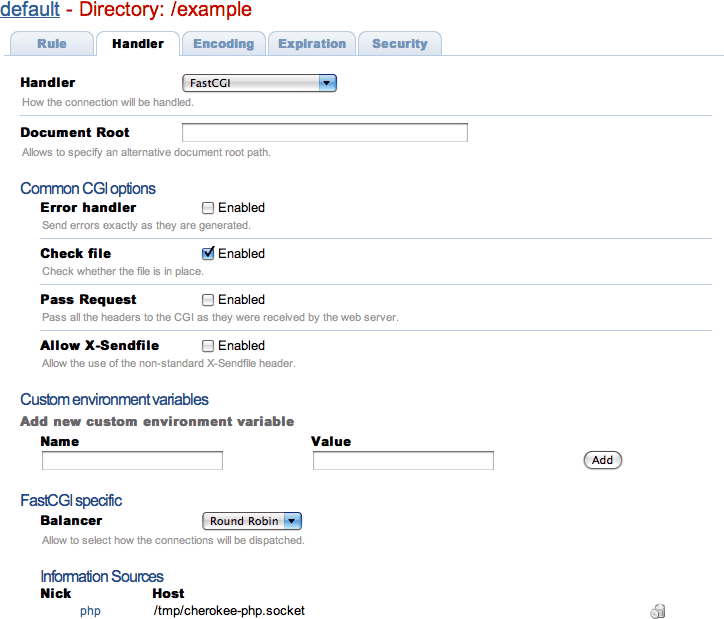
Index → Cookbook
Cookbook: Setting up PHP
There is not much to learn to configure PHP with Cherokee. The default configuration (the one created by cherokee-admin from scratch when there is no cherokee.conf present) already supports PHP.
This example shows a typical usage of FastCGI. It only uses one information source nicknamed php in this case. This connects to a FastCGI server located in localhost in port 1234. If no server is running, the webserver will run the FastCGI server by issuing the command defined as the Interpreter sub-parameter:

This other example shows a typical usage of multiple FastCGI servers. It connects to FastCGI servers in several locations. If no server is running in the local computer, the webserver will run the FastCGI server by issuing the specified command. Note that for remote FastCGI servers, you are responsible of running the FastCGI services there manually:

The PHP_FCGI_CHILDREN environment variable is mandatory for PHP FastCGI servers. It defines how much children should serve the requests coming from the webserver.
If you define PHP_FCGI_MAX_REQUESTS, the value must be negative if you do not want the PHP process to ever be restarted. If you leave it unset, PHP will take the default value (500), after which it will be restarted. It is generally a good idea to let PHP be restarted to free up resources and possible memory leaks.
Note that only FastCGI-enabled binaries of PHP will work with the FastCGI handler. Many prepackaged versions already enable this by default. If yours does not, you will need to build a suitable binary. You can check this with the -v parameter:
$ php-cgi -v PHP 5.2.5 (cgi-fcgi) (built: Apr 20 2008 17:11:05) Copyright (c) 1997-2007 The PHP Group Zend Engine v2.2.0, Copyright (c) 1998-2007 Zend Technologies
You cannot proceed unless the "cgi-fcgi" string is present.
